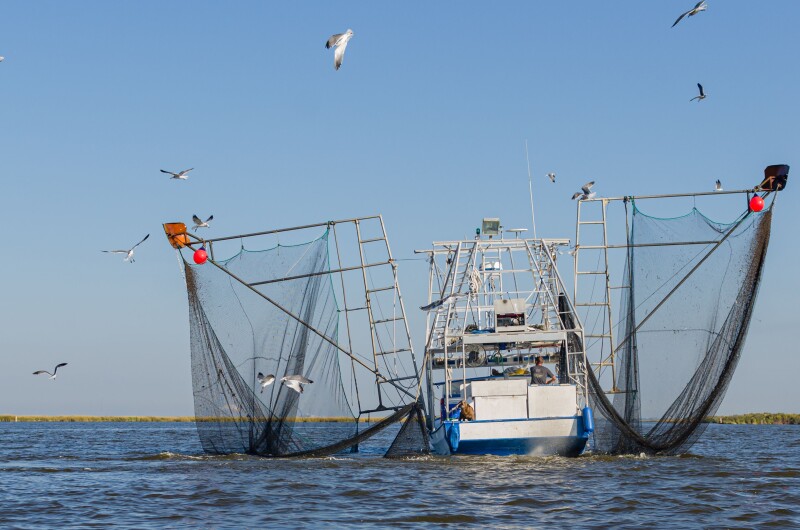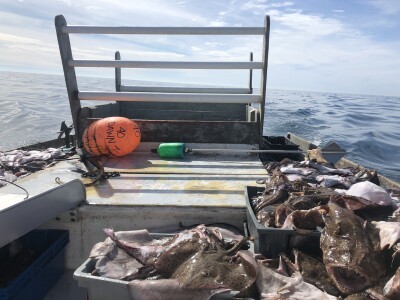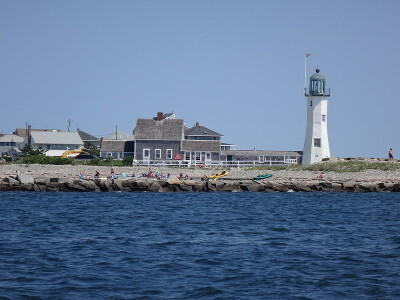As spring visitors pack the scenic waterfronts and beach towns around Wilmington, North Carolina, a troubling discovery is surfacing behind the menus of local seafood joints: most of the shrimp served isn’t local.
A recent series of investigations through eight states led by SEAD Consulting on behalf of the Southern Shrimp Alliance (SSA) has found that 77 percent of sampled restaurants in Wilmington, Carolina Beach, and Wrightsville Beach are serving imported, farm-raised shrimp while marketing it as local, wild-caught product. The findings stem from SEAD’s portable genetic analysis tool, RIGHTTest, which was deployed at 44 restaurants between April 9 and 12.
Of the 44 restaurants tested, 34 were found to be selling mislabeled shrimp. More concerning, 25 of those either explicitly labeled their dishes as “local” or verbally claimed so through the staff. Only 10 establishments were confirmed to be serving U.S. wild-caught shrimp.
“It’s incredibly disappointing to see restaurants mislead consumers in Wilmington, and in most tested markets, about the origin of their shrimp,” said John Williams, executive director of the SSA. “When restaurants mislead customers, they not only damage consumer trust, they undercut the local shrimping economy and culture.”
The problem goes beyond regional economics — it is a matter of transparency and legality. While North Carolina does not have state-level legislation requiring restaurants to disclose whether shrimp is wild-caught or raised or to list its country of origin, the Federal Trade Commission requires businesses to avoid misleading advertising. According to federal guidance, even "suggestive language or ambiance" implying foreign products are local can constitute fraud.
Wilmington’s coastal identity is closely tied to its shrimping tradition, drawing more than 9 million tourists annually, many searching for fresh, local seafood. But even as the federal government introduced new tariffs on imported shrimp, such as a recently announced 10 percent duty, the study shows that misleading menu claims remain a major loophole.
“This is exactly why SEAD Consulting partnered with Florida State University to create the RIGHTTest — to bring transparency to the table,” said Erin Williams, co-founder and COO of SEAD. “Genetic testing is an essential tool to protect the American wild-caught seafood industry.”
The 10 restaurants confirmed to be serving authentic, wild-caught shrimp include:
1. Princess Seafood, 3016 Princess Pl Dr, Wilmington, NC 28405
2. Cape Fear Seafood Company, 143 Poole Rd, Belville, NC 28451
3. Seaview Crab Company, 1515 Marstellar St, Wilmington, NC 28401
4. Shuckin' Shack, 127 N Front St, Wilmington, NC 28401
5. Coquina Fishbar, 890 Town Center Dr, Wilmington, NC 28405
6. King Neptune, 11 N Lumina Ave, Wrightsville Beach, NC 28480
7. Flying Oyster Machine & Bar, 530 Causeway Dr T-1, Wrightsville Beach, NC 28480
8. Carolina BBQ & Seafood, 1602 College Rd, Wilmington, NC 28403
9. Boathouse Calabash Seafood, 6328 Oleander Dr, Wilmington, NC 28403
10. Riverview Restaurant, 121 Riverfront Rd, Fort Fisher Blvd S, Kure Beach, NC 28449
SEAD Consulting and SSA plan to issue formal notices to the 34 restaurants found in violation and will conduct follow-up testing later this year.
“There is no shame in selling imported shrimp,” said David Williams of SEAD. “But there’s a big problem when you pretend it’s local. Let consumers decide with the truth.”
Read more about SEAD Consulting’s findings in Gulf Shores, Alabama.







